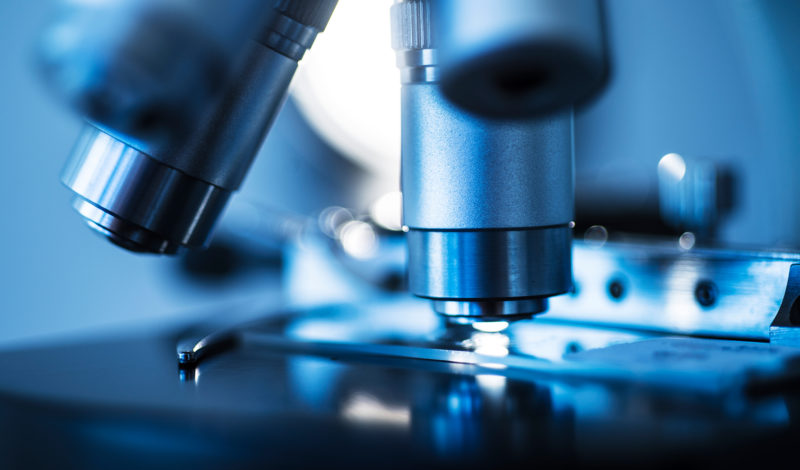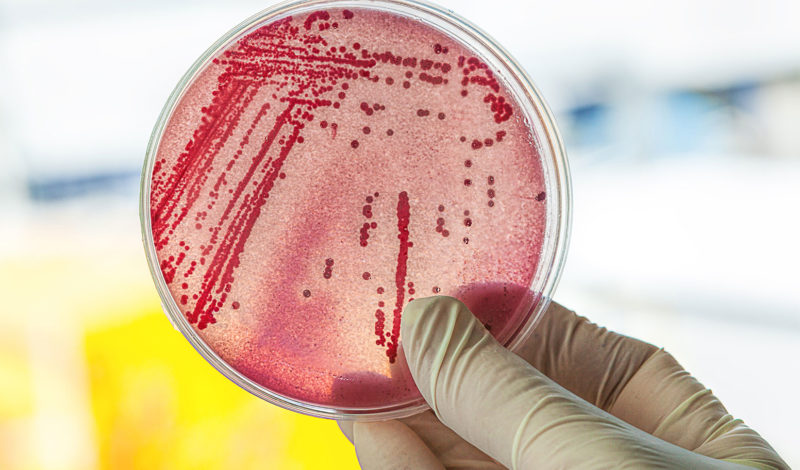With the help of a colonoscopy, changes in the bowel can be detected early on. During the examination, the doctor [...]

Bowel sounds
Bubbling, growling, mumbling: Stomach and intestines like to make themselves noticeable. How does this actually happen, and are particularly loud intestinal noises directly after a meal a cause for concern?
What you can note is:
- Certain intestinal sounds are normal even in a healthy intestine.
- Intestinal sounds can reveal something about the condition of the intestine.
Usually, a few noises in the abdomen simply show that bowel and intestines work. But to listen carefully makes sense anyway. In combination with other symptoms, intestinal sounds also reflect the health of the digestive tract.
How do intestinal noises develop?
Causes of intestinal noises are gases and liquids in the stomach and intestines. These two organs regularly contract to digest food, moving the gases and liquids they contain that cause the noises. That gases are contained in the digestive tract is quite normal, by the way. On the one hand, we swallow air all day long, and on the other hand they are produced by digestion. Carbohydrates, for example, are broken down into carbon dioxide, hydrogen and methane.
The typical bubbling that you hear sometimes is exactly what it sounds like: Gases meet liquids in the intestine and move through them in the form of small bubbles. The gastric growl, which we associate mainly with an empty stomach and hunger, is also caused by gas. Air that is in the empty stomach is pressed downwards into the intestine during contraction, where it encounters chyme and makes the typical noise. Sometimes, however, it is caused by the interaction of gastric gas and gastric acid; in any case, it is nothing unusual.
For most people, the most annoying thing about intestinal sounds is probably that they cannot be suppressed. If gas wants to leave the body, you can usually control it, but if it moves in the intestine, you are helpless. This is because we have control over the sphincter muscle and the stomach entrance, but not over the intestine. Of course, this is only a small consolation when the abdomen is loudly speaking in an inappropriate situation.
Intestinal noises and diseases
Loud and constant intestinal noises can also indicate a disease. However, this must always be clarified with a doctor, and in most cases there are other symptoms in a case of illness besides a noisy stomach like pain or diarrhoea.
How are intestinal sounds and diseases related? One possibility is that there have been changes in the intestine. If obstacles have arisen, chyme, gases and liquids must pass by, which can cause loud noises.
Persons dealing with irritable bowel syndrome or other chronic intestinal disease may also know the combination of pain and sound. The gas, which is responsible for the sound, also irritates the inflamed intestinal mucosa during its movement.
However, these symptoms can also occur in an infection associated with diarrhoea. Another reason for loud intestinal sounds in combination with pain is intolerance to certain foods.
If the intestinal noises occur mainly after eating, it is worth keeping a nutrition diary for some time. In addition, abdominal rumbling may be due to medications that influence the intestinal flora. Especially unusual intestinal noises in combination with other symptoms should be clarified by a physician in case of doubt.
Intestinal noises and the microbiome
If you are worried about your intestinal noises that are accompanied by abdominal pain, you should monitor them closely on a daily basis. In a nutrition diary, you can also note which other symptoms you may be experiencing in addition to intestinal sounds. It is also helpful to read more about intestinal flora – also known as microbiota – so you can better understand your digestive system.
- Sources:
- Bauch gluckert: Daher kommen die Geräusche von Magen und Darm | FOCUS.de
- Zaborski D, Halczak M, Grzesiak W, Modrzejewski A. (2015) Recording and Analysis of Bowel Sounds. Euroasian J Hepatogastroenterol. 5(2):67-73. doi: 10.5005/jp-journals-10018-1137
- Schuster MM, Crowell MD, Koch KL. Schuster atlas of gastrointestinal motility in health and disease. Hamilton, ON: BC Decker Inc; 2002. p. 494.
- Yamada T. Atlas of gastroenterology. Oxford, Hoboken, NJ: John Wiley and Sons; 2009. p. 1209



